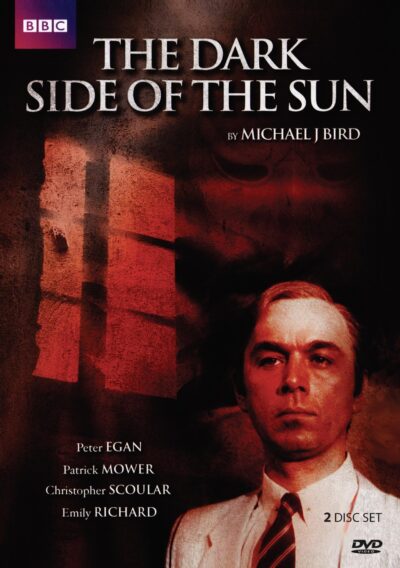rareandcollectibledvds
The Dark Side Of The Sun
The Dark Side Of The Sun
 Before you ORDER please check do you wish to order a DVD or a Digital Download file
Before you ORDER please check do you wish to order a DVD or a Digital Download fileFor DVD use the GET DVD Button
For a Digital Download use the DOWNLOAD Button
Couldn't load pickup availability
The Dark Side Of The Sun, British photographer Don Tierney is killed in a car-crash on the island of Rhodes. When his widow, Anne, goes there to complete his assignment, she is apparently haunted by his ghost. Does the key to his death lie in the crusader castle of Hagios Theodoros, where influential political figures meet in secret? And what of the handsome owner of the castle, Raoul Lavallière, who takes a romantic interest in Anne? Supernatural forces and human conspiracies combine, leading Anne and her friends into danger and a confrontation with a 700-year-old power.
STARS: Peter Egan, Emily Richard, Patrick Mower
55 min | Fantasy, Horror, Mystery,, Romance, Thriller | 1983| Color
Movies with low demand and/or out of print are manufactured-to-order using high quality recordable DVDs. Please read FAQs if unsure, or send a query.
All DVDs are Region 0 and are guaranteed to play on any DVD player in any country in the world
Satisfaction Guarantee – if you are not satisfied with any aspect of your purchase then we will explore all options to rectify the issue
COMBINED POSTAGE: ONLY CHARGED FOR THE FIRST DVD ALL OTHERS IN A MULTIPLE ORDER ARE POST FREE
Postage: Free In Australia.
Postage: Rest Of The World at Table Rate
All DVDs come in a DVD case with color artwork and printed disc
All DVDs are available as an MPEG4 file sent to you via an email link. Save on postage and waiting time. Transfer can take up to 12 hours depending on the time zone you are in.
Gripping story
Originally saw this when it first aired in the UK where I was living at the time. So disappointed that it’s never been made available on DVD for North America.
If you ever get a chance to see it, think you’ll enjoy.
A picturesque, if patchy, Templar (K)nightmare on Rhodes
The Dark Side Of The Sun, The plot is pure Gothic: an exotic setting, a mysterious castle, a damsel-in-distress, an outwardly attractive and charming villain, murder, a secret society, and incubus-type supernatural sexual intrigues. There are strong overtones of ‘Dracula’. The Jonathan Harker role is split between Don Tierney (Patrick Mower) and David Bascombe (Christopher Scoular). Don’s widow, Anne, is both Lucy and Mina, but without Mina’s basic strength. She is traumatised, yes; but she was already on the insipid side before her breakdown, and I found her too wet to engage with, although Emily Richard has a likable screen presence elsewhere. Ismini Christoyannis (Betty Arvaniti) makes a far more appealing heroine. She is ‘Dark Side”s considerably more glamorous answer to Professor van Helsing: intelligent, interesting, brave. She realizes before the others the nature of the powers they are fighting, and is a match for them. I was sorry that we do not get a major verbal confrontation between Ismini and Raoul. The sparks (and more) would have flown. (In fic, they’d make a great pairing!)
‘The Dark Side of the Sun’ is spooky fun that does not entirely fulfil its promise. Greater moral and narrative ambiguity could have made it stronger: few things in life are as black-and-white as the Templars’ Bauçant banner, and the order’s demonisation (literal, in this case) leaves a nasty taste. Anne and David are, at times, too stupid to survive. Possible non-supernatural explanations, which could have given more ‘texture’ to the plot, were not raised. Could setting up a ‘Brotherhood’ for prominent businessmen and politicians to network in privacy, while pretending to be knights, be merely a money-spinner to fund the restoration and running of the castle? Even a near-immortal Templar needs to keep his roof repaired!


